Barcelona is a city that pulses with life, culture, and a vibrant market scene. With over 40 markets scattered throughout the city, including the famous market La Boqueria on La Rambla, you can find everything from fresh produce to unique antiques. These markets are not just places to shop; they are vibrant hubs of community life where locals and tourists alike come to experience the true essence of Barcelona.
Whether you’re a foodie, a fashion enthusiast, or simply looking to soak up the local atmosphere, Barcelona’s markets offer something for everyone. In this guide, we’ll explore the top markets in Barcelona, what to expect, and how to make the most of your visit.
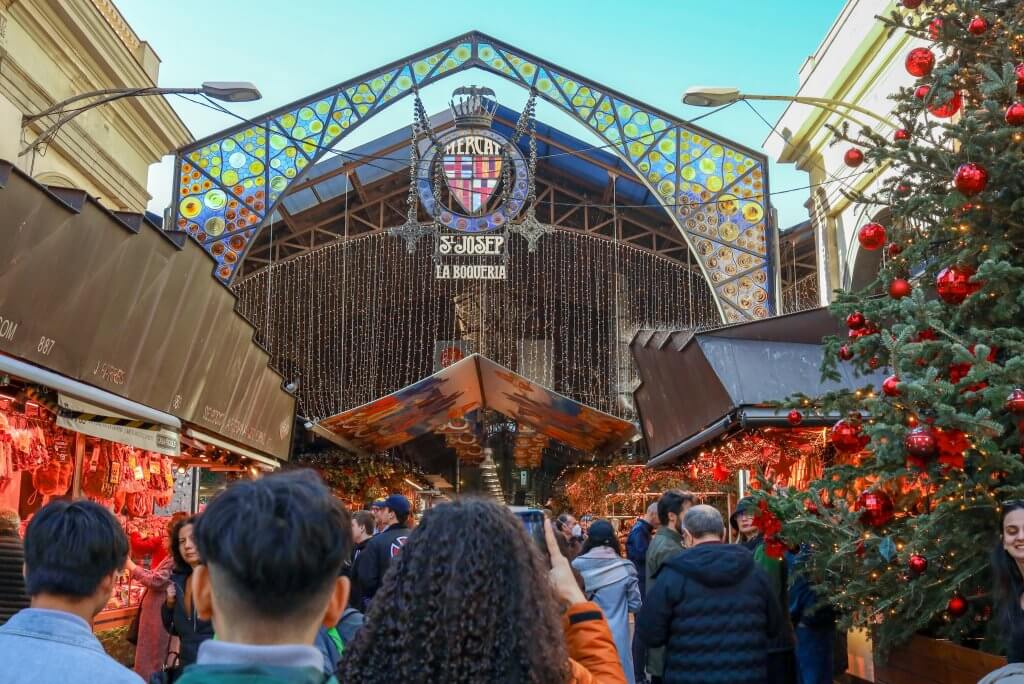
Located on La Rambla, La Boqueria is undoubtedly one of Barcelona’s most famous and bustling markets. The Mercat de la Boqueria, dating back to the 13th century, is an iconic food market known for its extensive variety of fresh produce and international delicacies.
Variety of Stalls: With over 300 stalls selling fresh produce, meats, seafood, and gourmet foods, it’s a paradise for food lovers.
Local Specialties: Try local delicacies such as jamón ibérico (Iberian ham), fresh seafood tapas, and artisanal cheeses.
Opening Hours: Open Monday to Saturday from 8 am to 8:30 pm.
Tip: At the main entrance there are all the ‘tourist stalls’, so go further back and see where the locals buy and eat.
Getting there: La Boqueria Market Metro L3 (Liceu station) or bus services along La Rambla.
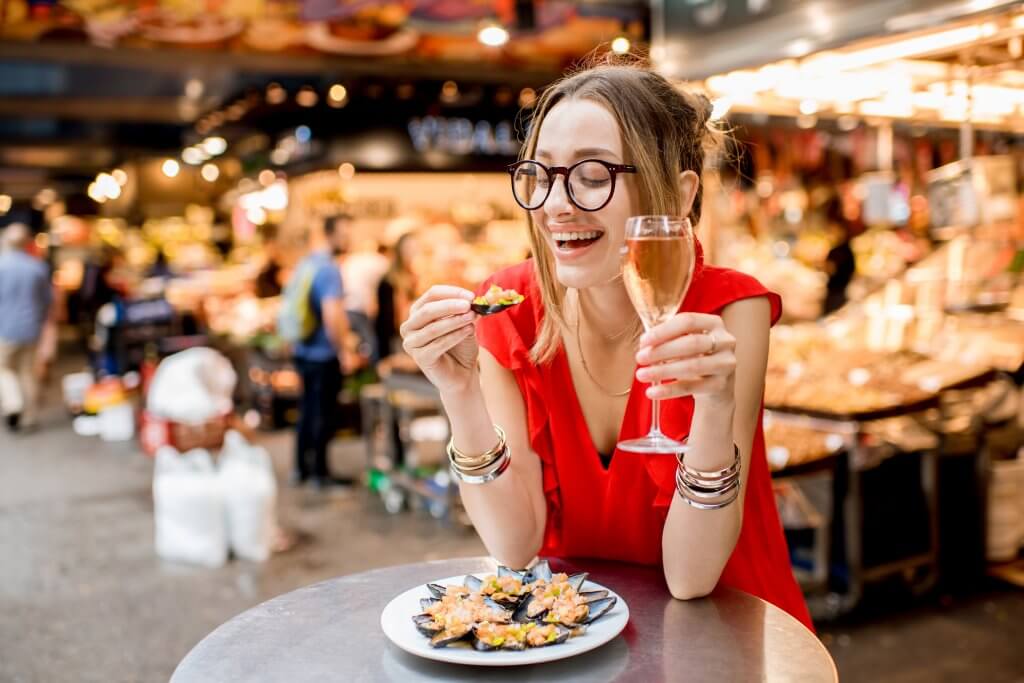
Recently renovated, this market is popular among locals for its vibrant atmosphere.
Architectural Beauty: Features a stunning iron structure and is divided into sections for fresh produce, meats, and more.
Events: Hosts a book and coin market every Sunday.
Tip: Best visited on weekdays when it’s less crowded.
Getting there: Mercat de Sant Antoni: Metro L2 (Sant Antoni station).
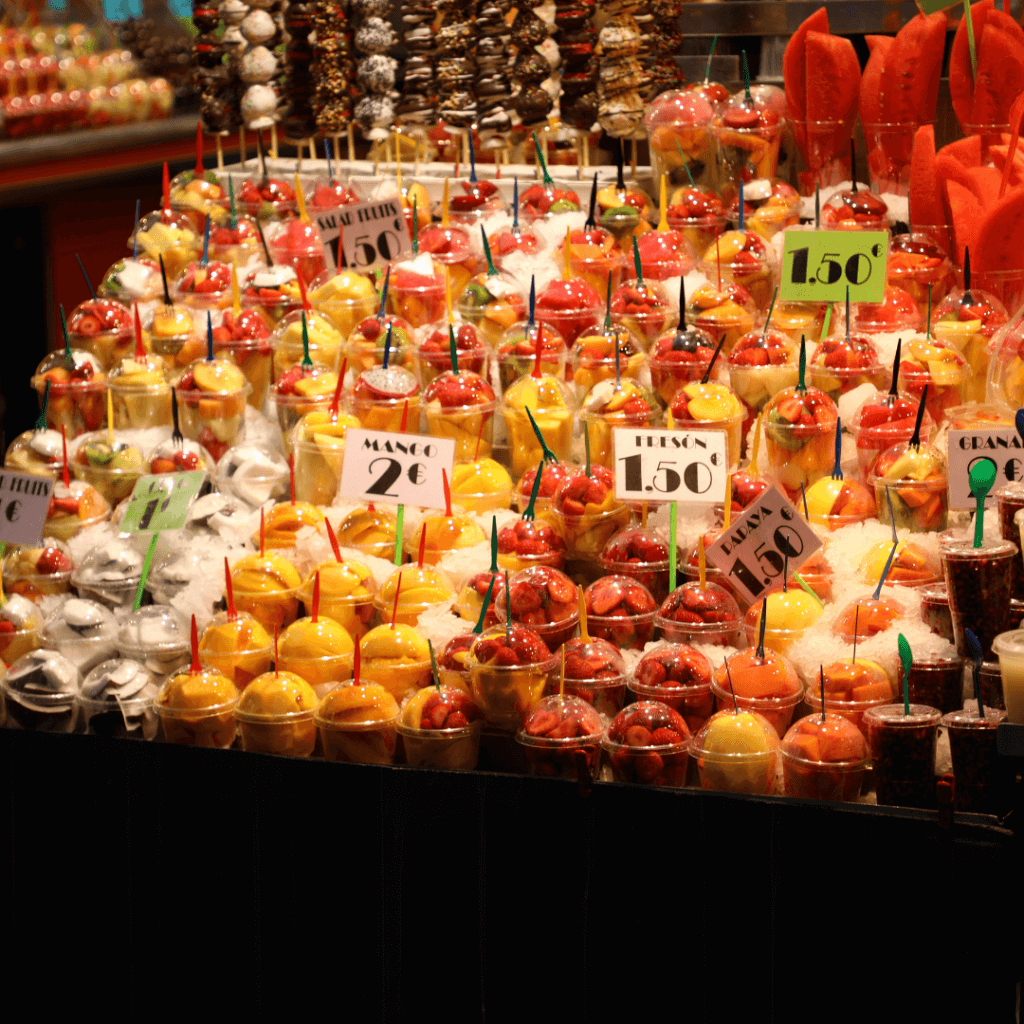
This charming market in the upscale Sarrià-Sant Gervasi neighbourhood offers a delightful selection of high-quality products.
Artisanal Goods: Known for its fresh seafood, organic produce, artisanal cheeses, and cured meats.
Atmosphere: A local favourite with a friendly vibe that reflects traditional Catalan culture.
Opening Hours: Monday 7:30 am – 3 pm; Tuesday to Friday 8 am – 8 pm; Saturday 7:30 am – 3 pm; closed on Sundays.
Getting there: Mercat Sarrià-Sant Gervasi, Metro L12
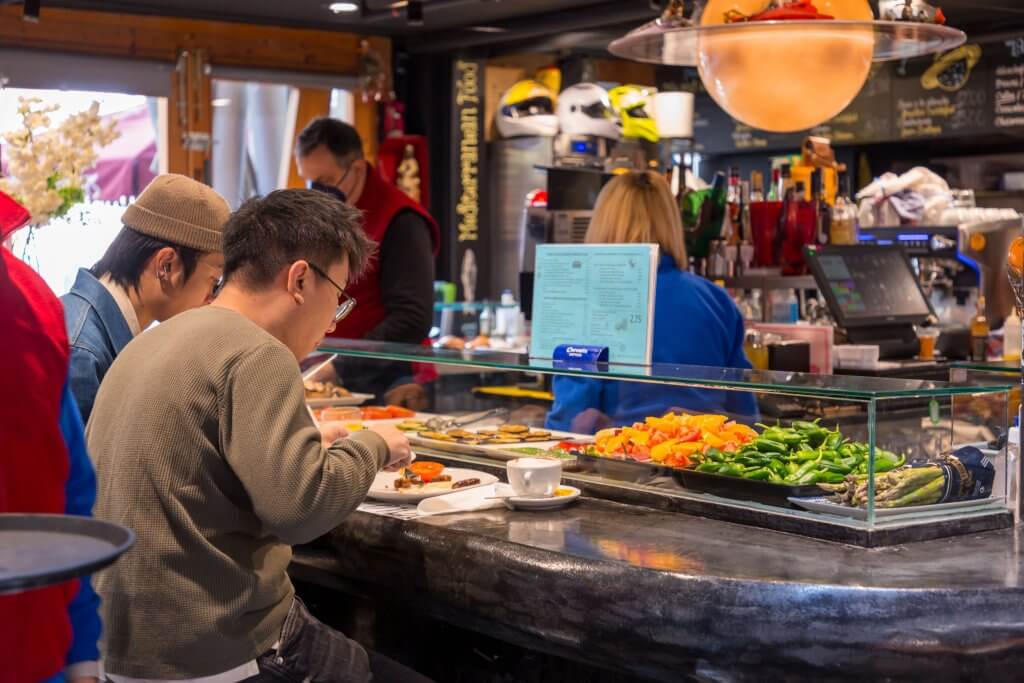
Known for its colourful undulating roof, Santa Caterina Market is less touristy than La Boqueria.
Food Variety: Offers a mix of traditional food stalls and modern eateries.
Opening Hours: Open Monday to Saturday from 7:30 am onwards; closing times vary by day.
Tip: Visit for breakfast or brunch to enjoy freshly made pastries and juices.
Getting there: Mercat de Santa Caterina: Metro L4 (Jaume I station).
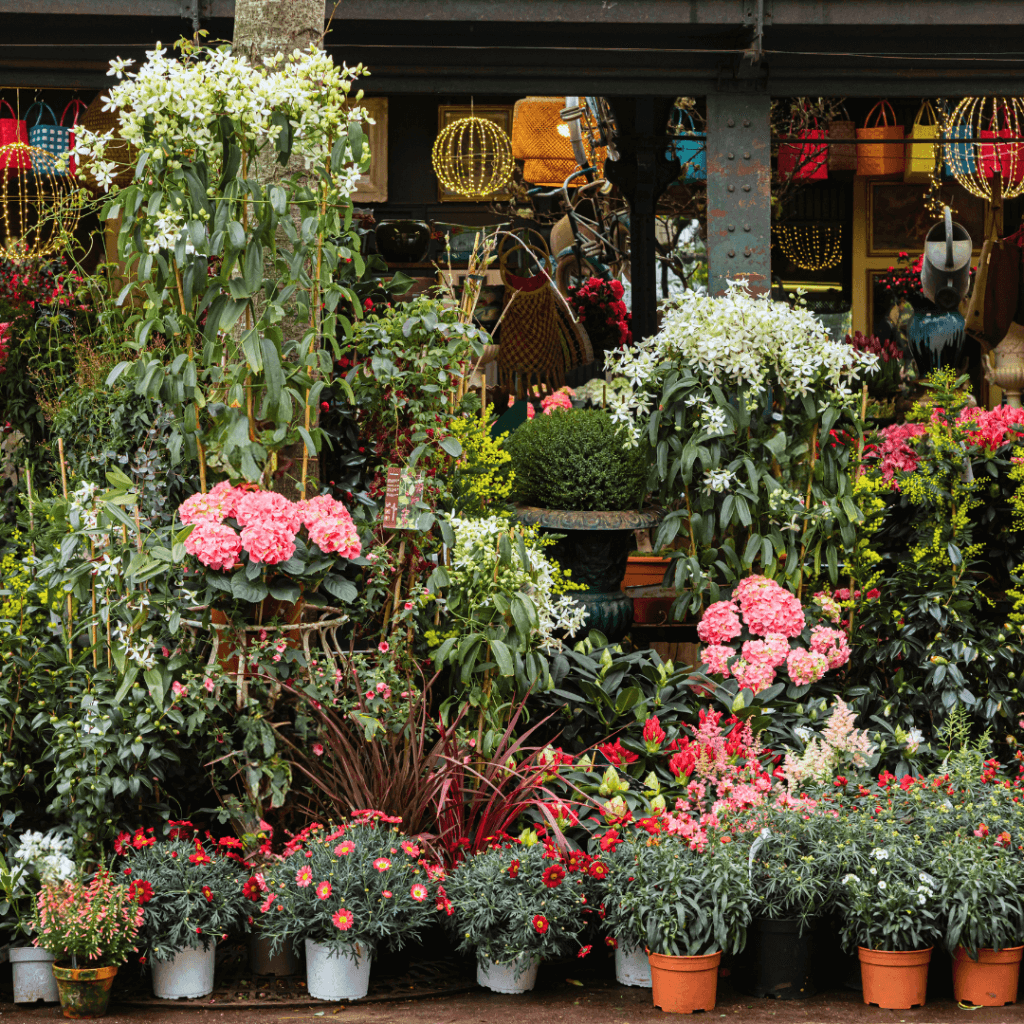
Held in a trendy industrial space in Poblenou, this monthly market showcases local designers and artisans.
Creative Vibe: Features handmade crafts, vintage clothing, and street food from local vendors.
Live Music: Enjoy live performances while you shop.
Tip: Check their website for event dates and ticket information.
Getting there: Palo Alto: Metro L4
Known primarily as a flower market, this beautiful space also offers fresh produce and local crafts.
Floral Paradise: A haven for gardeners with an array of flowers and plants.
Food Offerings: Fresh fruits and vegetables alongside local delicacies.
Opening Hours: Open 24 hours for flowers; food market hours vary.
Getting there: Mercat de la Concepció: Accessible via metro (Passeig de Gracia station).
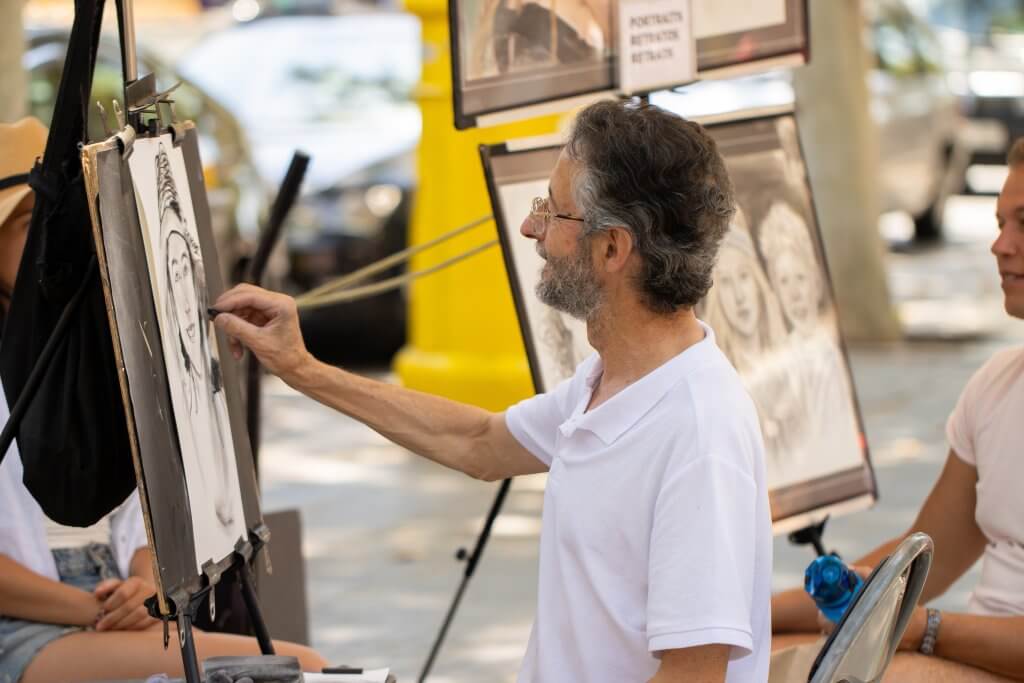
Located in the heart of Barcelona, the Pintors del Pi Market is a vibrant showcase of local artistic talent.
Local painters: Set against the backdrop of historic architecture, this market offers a diverse array of handmade crafts and unique artworks created by local painters.
Arts: Visitors can explore stalls filled with intricate pottery, original jewelry, and colorful textiles, all crafted with meticulous care. Live painting sessions and artistic demonstrations add to the creative atmosphere, providing insight into Barcelona’s thriving art scene.
Getting there: Placa del Pi: Metro L 3
Situated in a bustling district of Barcelona, the Fira de Nautumismo captures the essence of the city’s rich cultural heritage.
Local crafts: This market specializes in numismatic treasures, showcasing rare coins and ancient artifacts from various civilizations. Beyond numismatics, the market also features vintage jewelry, antique maps, and historical curiosities, offering a glimpse into Barcelona’s past through tangible artifacts.
Getting there: Fira de Nautumismo: Placa Reial Metro L 3
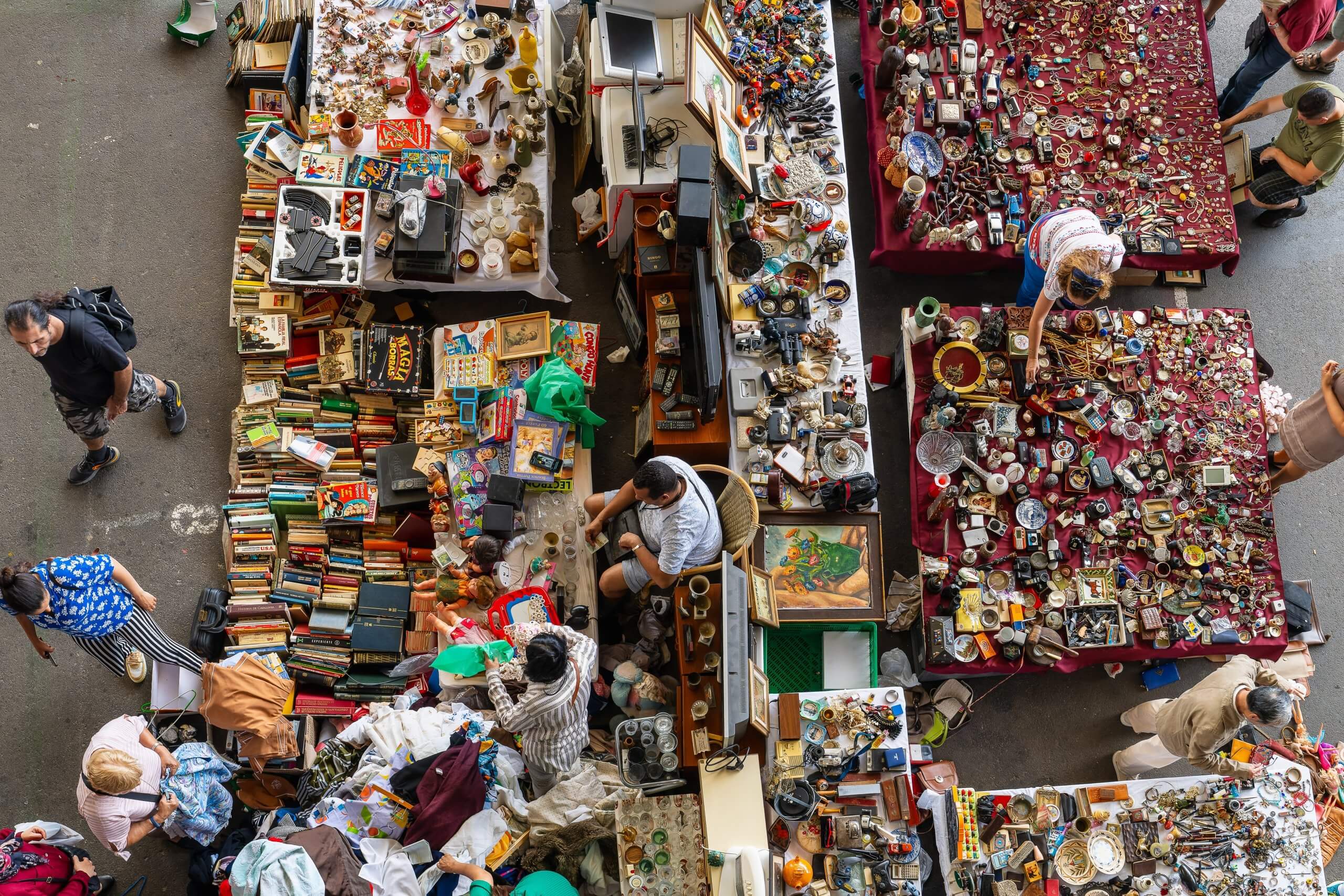
One of Europe’s oldest flea markets with a history dating back to the 14th century.
Diverse Offerings: Browse antiques, collectibles, second-hand goods, and even new items at bargain prices.
Unique Experience: The lively atmosphere includes live auctions on select days.
Opening Hours: Mondays, Wednesdays, Fridays, and Saturdays from 9 am to 8 pm.
Getting there: Mercat dels Encants: Metro L1
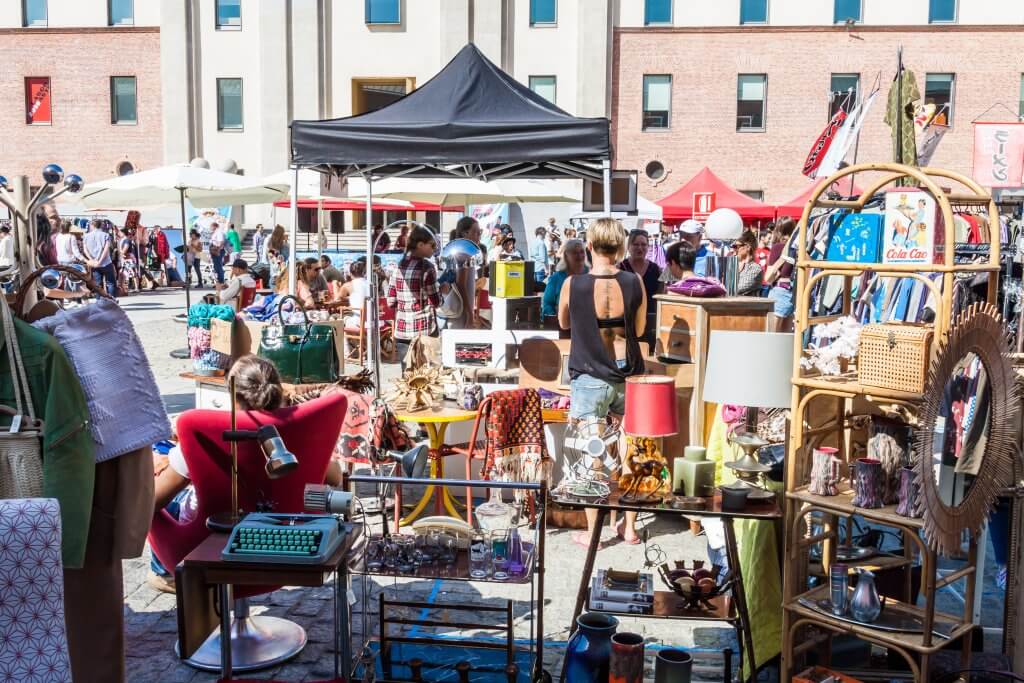
A unique second-hand market where you can buy or exchange vintage items.
Community Spirit: Encourages locals to bring their unwanted items for others to discover treasures.
Location: Often held near Barceloneta Beach; check their website for upcoming events.
Getting there: Lost & Found: Plaça del Mar Metro L4
Nestled in the eclectic El Raval neighborhood, El Flea Market Barcelona is a lively hub of vintage finds and artistic expression.
When: Held regularly every 2 weeks on Sundays, this market transforms the streets with its bohemian charm and diverse offerings.
Second Hand: Visitors can meander through stalls brimming with retro clothing, quirky antiques, and unique collectibles sourced from local vendors and international artisans alike. Whether searching for one-of-a-kind fashion pieces or seeking inspiration from the city’s cultural tapestry, El Flea Market Barcelona promises a memorable experience.
Getting there: El Flea: Drassanes L3
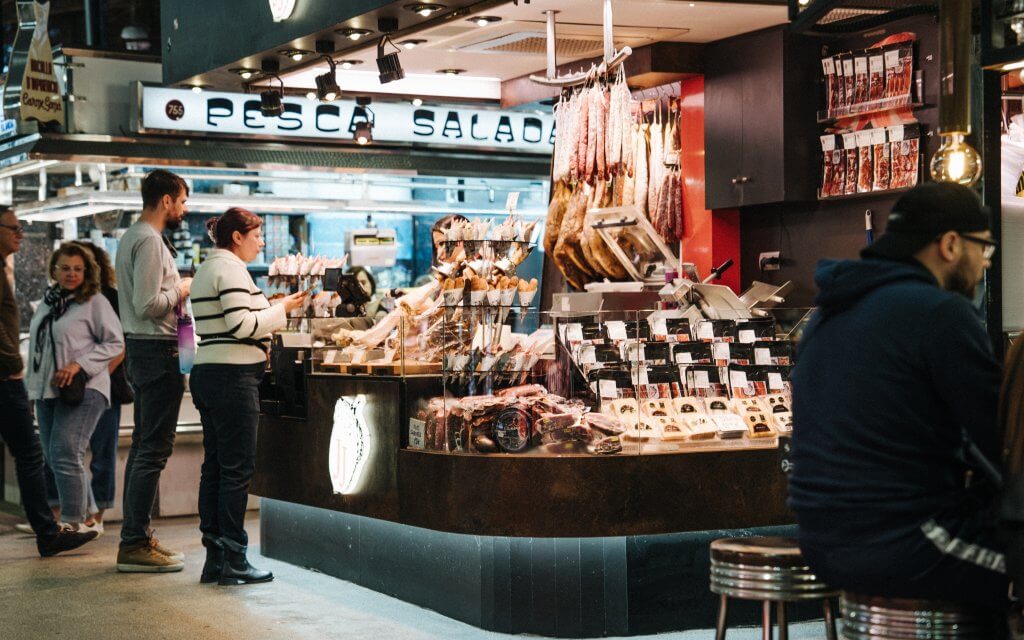
When visiting markets in Barcelona:
Be respectful of vendors and fellow shoppers.
Try to speak some Spanish or Catalan as a sign of appreciation for the local culture.
Don’t touch produce or products without permission.
Be prepared to haggle at flea markets for the best deals.
Many markets host special events throughout the year:
La Boqueria often features food festivals celebrating local cuisine.
Mercat de la Concepció hosts a flower festival in May.
Mercat de Santa Caterina has an annual food festival in October.
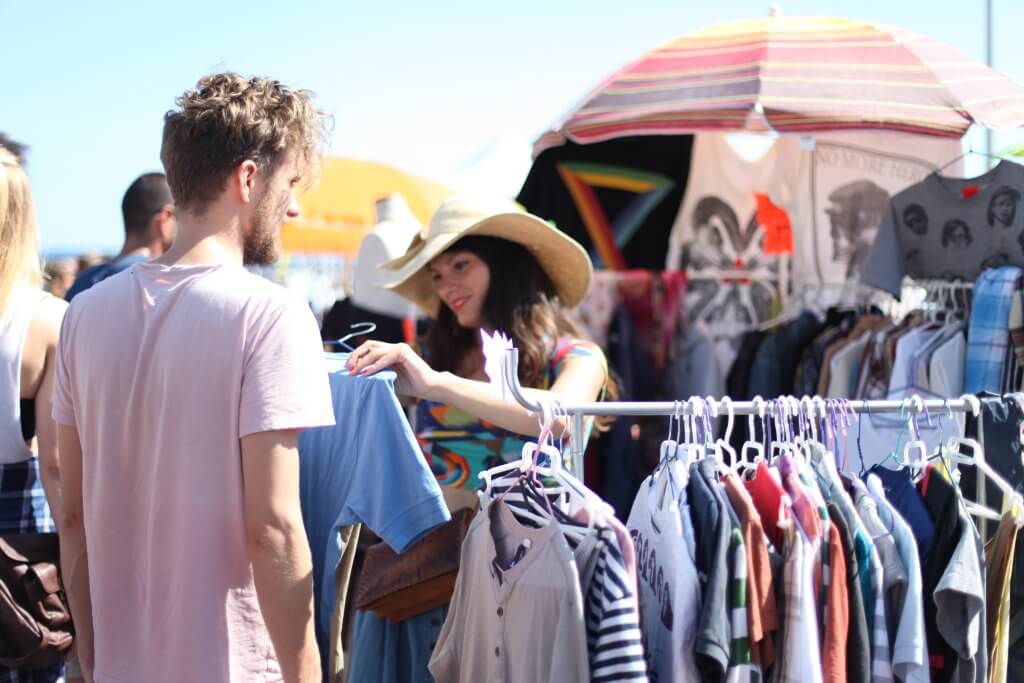
Avoid visiting during peak tourist season (June to August) for a more authentic experience.
Bring cash as not all vendors accept credit cards.
Don’t hesitate to try new foods; many stalls offer samples!
Bring your own reusable bag to reduce waste while shopping.
Barcelona’s markets are vibrant reflections of its culture and community. From iconic spots like La Boqueria to hidden gems like Palo Alto Market Fest, there’s something for everyone. So grab your shopping bags and immerse yourself in the lively atmosphere of Barcelona’s best markets!
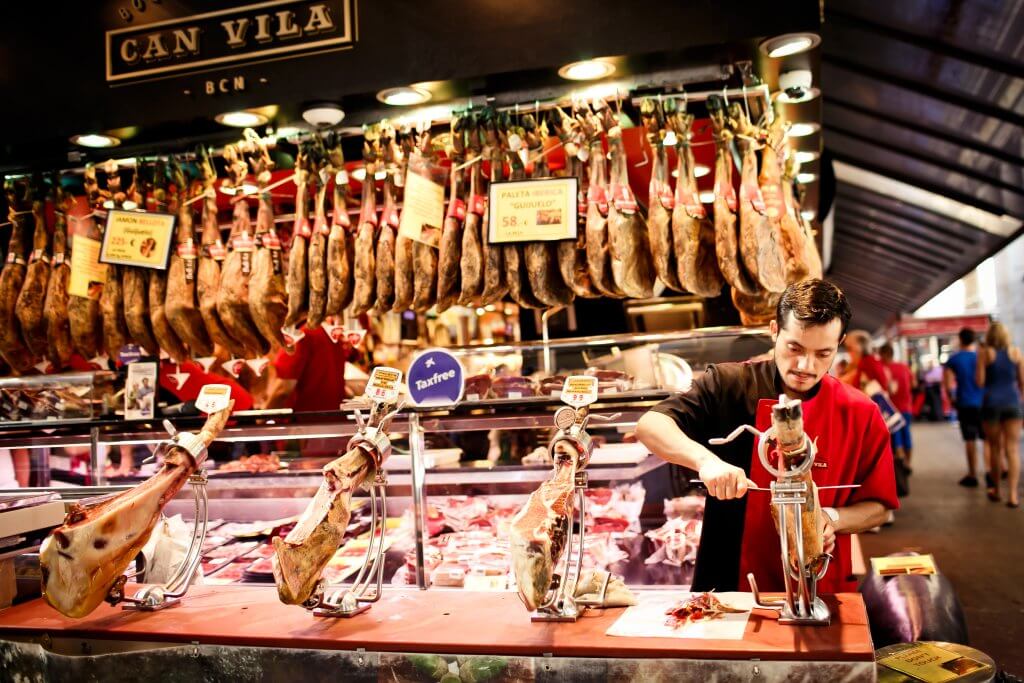
To enjoy a more relaxed experience at the markets:
Visit early in the morning or late afternoon when crowds are thinner.
Weekdays are generally less busy than weekends.
La Boqueria Market is widely regarded as the best market for fresh food in Barcelona. Located on Las Ramblas, it offers a stunning variety of fresh produce, seafood, meats, cheeses, and more. Don’t miss trying the fresh fruit juices or tapas at popular spots like Bar Pinotxo or El Quim de la Boquería.
For budget-friendly shopping, Mercat de Sant Antoni is a great option. Known for its fresh produce, meats, and seafood, it offers high-quality goods at more affordable prices compared to the more touristy markets like La Boqueria. Additionally, smaller neighbourhood markets such as Mercat del Ninot and La Barceloneta market often have competitive prices for fruits and vegetables.
Yes! Mercat dels Encants is one of the most popular flea markets in the city.
While it helps to know some basic phrases in Spanish or Catalan, many vendors understand English as well.